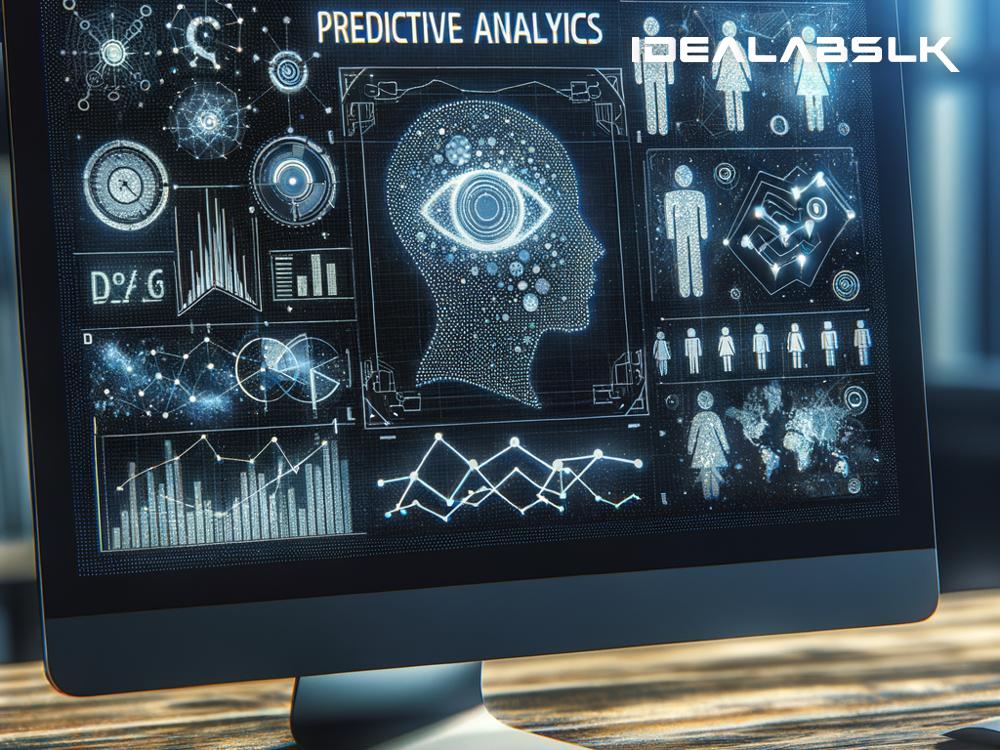Title: Understanding Predictive AI in Behavior Prediction: A Simplified Guide
Have you ever wondered how Netflix seems to know exactly what kind of movies you'll enjoy? Or how your social media feeds always seem to show content that interests you? Well, the secret sauce behind these almost magical predictions is Predictive AI. In this blog, we're diving into the world of Predictive AI, specifically focusing on how it's used in behavior prediction - all in simple English, so everyone can get on board!
What is Predictive AI?
At its core, Predictive AI (Artificial Intelligence) is a branch of AI that analyzes past and current data to make predictions about future events or behaviors. Think of it as a digital crystal ball that, instead of mystical powers, uses data and algorithms (set rules) to forecast what might happen next.
A Dive into the Process
Predictive AI in behavior prediction operates in a four-step process:
-
Data Collection: The starting point is gathering as much data as possible. For behavior prediction, this could be things like your browsing history, purchases, or even posts you've engaged with online.
-
Data Analysis: Once the data is collected, Predictive AI sifts through it to find patterns or trends. This step involves complex algorithms and, sometimes, machine learning—a type of AI where machines learn from and act on data.
-
Modeling: Here, AI uses the insights from data analysis to build models. These models are essentially sets of rules or predictions about how similar data will behave in the future.
-
Prediction: With a model in place, Predictive AI can then forecast future behaviors or events. So, when Netflix recommends a movie you might like, it's because its Predictive AI has identified a pattern in your viewing habits and found a matching suggestion.
Why is it so powerful?
The beauty of Predictive AI lies in its ability to process vast amounts of data quickly and accurately. For humans, analyzing such data manually would be time-consuming and prone to errors. But for AI, it's all in a day's work.
Additionally, Predictive AI continuously learns and improves. The more data it has, the more accurate its predictions become. This iterative process, especially in machine learning, means that Predictive AI can adapt to new data, making its forecasts more reliable over time.
Application in Real Life
Beyond entertainment and social media, Predictive AI is revolutionizing various sectors:
-
Healthcare: Predictive AI can forecast the likelihood of diseases based on patient data, helping in early diagnosis and personalized treatment.
-
Finance: In banking, it's used to predict credit risk, while in stock trading, it forecasts market trends, helping investors make informed decisions.
-
Retail: By predicting buying behaviors, retailers can manage inventory more efficiently and tailor marketing efforts to increase sales.
-
Security: Predictive AI can forecast potential cybersecurity threats, allowing businesses to enhance their security measures proactively.
Ethical Considerations
While Predictive AI has immense benefits, it also raises ethical concerns, particularly around privacy and data security. The idea that machines know so much about our behaviors and preferences can be unsettling. Furthermore, inaccurate predictions could lead to unfair consequences, like being wrongfully denied a loan or a job.
Thus, as Predictive AI becomes more integrated into our lives, it's crucial to establish guidelines that protect individuals' privacy and ensure the fairness and accuracy of AI predictions.
The Future is Here
Predictive AI in behavior prediction represents a major leap in how we utilize data to foresee and shape the future. By harnessing the power of data and AI, we can make more informed decisions, personalize experiences, and even solve complex problems in ways we've never before imagined.
As we continue to refine this technology, the potential is limitless. However, it's equally important to tread carefully, respecting privacy and ethics, ensuring that the future we're building is one we all want to live in.
In conclusion, Predictive AI is like having a roadmap to the future, offering insights that help anticipate and mold our behaviors in seemingly personalized ways. As this technology evolves, it promises to bring even more astonishing innovations into our lives, making what once seemed like science fiction a reality. With great power comes great responsibility, and as we chart this course, it's up to us to navigate the balance between innovation and ethics, ensuring a future that benefits us all.

